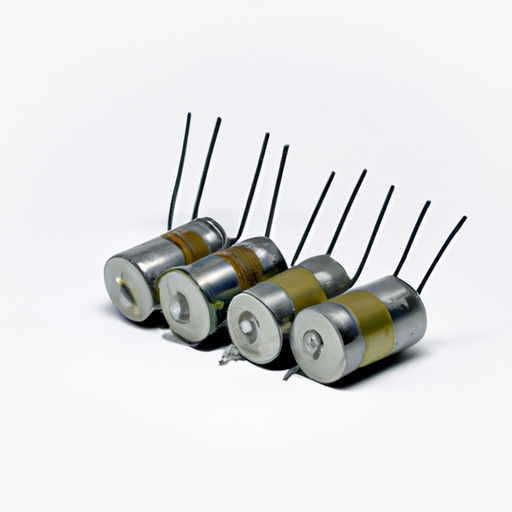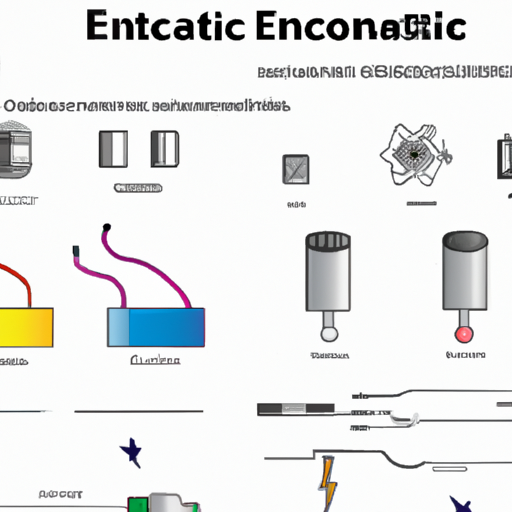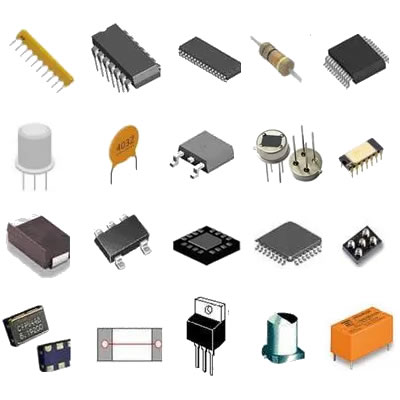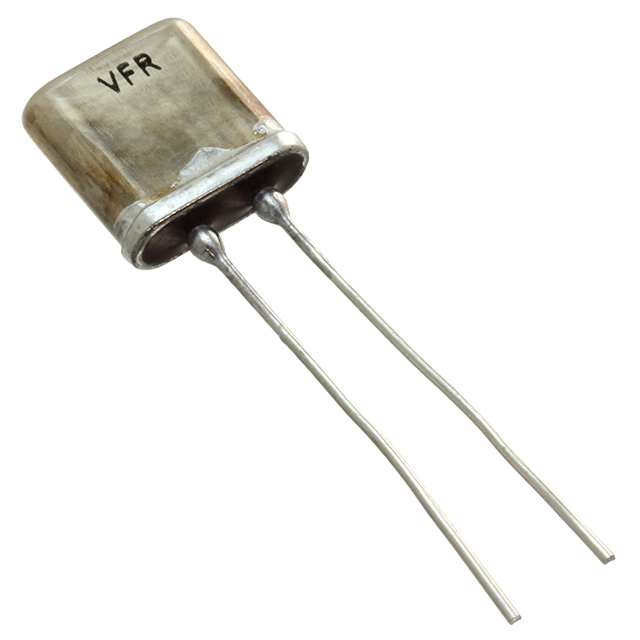What are the advantages of capacitor capacitor products?
What are the Advantages of Capacitor Products?
I. Introduction
Capacitors are fundamental components in electronic circuits, serving a variety of essential functions. Defined as passive electrical devices that store energy in an electric field, capacitors play a crucial role in managing electrical energy in countless applications. From consumer electronics to industrial machinery, their importance cannot be overstated. This article aims to explore the various advantages of capacitor products, highlighting their significance in modern technology and their diverse applications.
II. Types of Capacitors
Capacitors come in several types, each with unique characteristics and applications. Understanding these types is essential for appreciating the advantages they offer.
A. Electrolytic Capacitors
Electrolytic capacitors are polarized components that provide high capacitance values in a relatively small size. They are commonly used in power supply circuits due to their ability to store large amounts of energy.
B. Ceramic Capacitors
Ceramic capacitors are non-polarized and known for their stability and reliability. They are widely used in high-frequency applications and are favored for their small size and low cost.
C. Film Capacitors
Film capacitors utilize a thin plastic film as the dielectric material. They are known for their excellent performance in terms of stability and low loss, making them suitable for audio and high-frequency applications.
D. Tantalum Capacitors
Tantalum capacitors are known for their high capacitance-to-volume ratio and reliability. They are often used in applications where space is limited, such as in mobile devices.
E. Supercapacitors
Supercapacitors, or ultracapacitors, are designed for high energy storage and rapid charge/discharge cycles. They are increasingly used in applications requiring quick bursts of energy, such as regenerative braking systems in electric vehicles.
F. Comparison of Different Types
Each type of capacitor has its advantages and disadvantages, making them suitable for specific applications. Understanding these differences helps engineers and designers select the right capacitor for their needs.
III. Key Advantages of Capacitor Products
Capacitor products offer numerous advantages that make them indispensable in various applications. Here are some of the key benefits:
A. Energy Storage
1. Quick Discharge and Recharge Capabilities
Capacitors can store and release energy rapidly, making them ideal for applications that require quick bursts of power. This characteristic is particularly beneficial in power supply systems, where capacitors can smooth out voltage fluctuations and provide immediate energy when needed.
2. Applications in Power Supply Systems
In power supply circuits, capacitors help maintain a steady voltage level, ensuring that electronic devices operate efficiently. They can store energy during low-demand periods and release it during peak demand, enhancing overall system performance.
B. Voltage Regulation
1. Smoothing Voltage Fluctuations
Capacitors play a vital role in voltage regulation by smoothing out fluctuations in electrical signals. This capability is essential in maintaining the stability of electronic circuits, preventing damage to sensitive components.
2. Enhancing Circuit Stability
By providing a buffer against voltage spikes and dips, capacitors enhance the stability of circuits. This stability is crucial in applications such as audio equipment, where consistent performance is necessary for high-quality sound reproduction.
C. Size and Versatility
1. Compact Designs for Various Applications
Capacitors are available in various sizes, allowing for compact designs in electronic devices. This versatility enables engineers to incorporate capacitors into a wide range of applications, from small consumer electronics to large industrial systems.
2. Wide Range of Capacitance Values
Capacitors come in a broad spectrum of capacitance values, making it easy to find the right component for specific needs. This range allows for tailored solutions in diverse applications, ensuring optimal performance.
D. Reliability and Longevity
1. Low Failure Rates
Capacitors are known for their reliability, with low failure rates compared to other electronic components. This reliability is crucial in applications where downtime can be costly, such as in industrial machinery.
2. Resistance to Environmental Factors
Many capacitors are designed to withstand harsh environmental conditions, including temperature fluctuations and humidity. This resilience ensures that they can operate effectively in various settings, from consumer electronics to outdoor industrial applications.
E. Cost-Effectiveness
1. Affordable Options for Various Applications
Capacitors are generally affordable, making them accessible for a wide range of applications. Their cost-effectiveness allows manufacturers to incorporate them into products without significantly increasing overall costs.
2. Long-Term Savings in Maintenance and Replacement
Due to their reliability and longevity, capacitors can lead to long-term savings in maintenance and replacement costs. Investing in high-quality capacitors can reduce the frequency of repairs and replacements, ultimately benefiting the bottom line.
F. High Efficiency
1. Low Equivalent Series Resistance (ESR)
Capacitors with low equivalent series resistance (ESR) are highly efficient, minimizing energy loss during operation. This efficiency is particularly important in applications where energy conservation is a priority.
2. Minimal Energy Loss During Operation
The high efficiency of capacitors translates to minimal energy loss, making them ideal for applications that require optimal performance. This characteristic is especially beneficial in renewable energy systems, where every bit of energy counts.
IV. Applications of Capacitor Products
Capacitor products find applications across various industries, showcasing their versatility and importance.
A. Consumer Electronics
1. Smartphones and Tablets
Capacitors are integral to the functioning of smartphones and tablets, helping to manage power supply and enhance performance. They ensure that devices operate smoothly, providing users with a seamless experience.
2. Audio Equipment
In audio equipment, capacitors play a crucial role in maintaining sound quality. They help filter out noise and stabilize voltage, ensuring that audio signals are transmitted accurately.
B. Industrial Applications
1. Motor Drives and Control Systems
Capacitors are essential in motor drives and control systems, providing the necessary energy storage and voltage regulation. They help improve the efficiency and reliability of industrial machinery.
2. Power Factor Correction
In industrial settings, capacitors are used for power factor correction, improving the efficiency of electrical systems. This application reduces energy costs and enhances overall system performance.
C. Renewable Energy Systems
1. Solar Inverters
Capacitors are critical components in solar inverters, helping to manage energy storage and conversion. They ensure that solar energy is efficiently harnessed and utilized.
2. Wind Energy Systems
In wind energy systems, capacitors play a vital role in stabilizing voltage and managing energy flow. Their ability to store and release energy quickly is essential for optimizing performance.
D. Automotive Industry
1. Electric Vehicles
Capacitors are increasingly used in electric vehicles, providing energy storage for regenerative braking systems. They help improve the efficiency and performance of electric drivetrains.
2. Advanced Driver-Assistance Systems (ADAS)
In ADAS, capacitors are used to manage power supply and enhance system performance. They ensure that critical functions, such as collision avoidance and lane-keeping assistance, operate reliably.
V. Future Trends in Capacitor Technology
As technology continues to evolve, so do capacitors. Here are some future trends to watch:
A. Advancements in Materials and Design
Innovations in materials and design are leading to the development of more efficient and compact capacitors. These advancements will enhance performance and open new possibilities for applications.
B. Integration with Other Technologies (e.g., IoT)
The integration of capacitors with emerging technologies, such as the Internet of Things (IoT), will enable smarter and more efficient devices. This trend will drive the demand for advanced capacitor solutions.
C. Environmental Considerations and Sustainability
As sustainability becomes a priority, manufacturers are focusing on developing environmentally friendly capacitors. This shift will lead to the creation of products that minimize environmental impact while maintaining performance.
VI. Conclusion
In summary, capacitor products offer numerous advantages that make them essential components in modern technology. From energy storage and voltage regulation to reliability and cost-effectiveness, capacitors play a vital role in various applications. As technology continues to advance, the importance of capacitors will only grow, making it crucial for engineers and designers to understand their benefits and applications. Exploring the world of capacitors can lead to innovative solutions and improved performance in countless electronic devices.
VII. References
For further information on capacitors and their applications, consider exploring the following resources:
1. "Capacitors: Principles and Applications" by John Smith
2. "The Art of Electronics" by Paul Horowitz and Winfield Hill
3. Online resources such as IEEE Xplore and Electronics Tutorials for the latest research and developments in capacitor technology.








